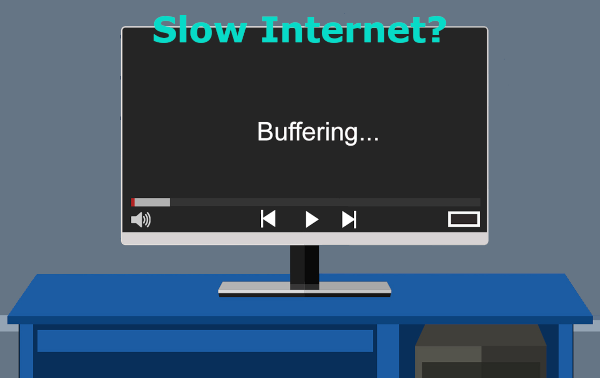
Internet speed and reliability has always been an issue for businesses. With COVID working from home is now a more permanent thing and Internet issues at people’s home can affect the business. But what can be done to improve Internet connectivity at your business and home?
Improving Your Internet Connectivity
Internet connections can vary widely depending on where you are. You could enjoy blazing fast internet that allows you to upload large files in minutes even while other employees are in the middle of a video call. Yet the office next door lacks the bandwidth and / or stability to participate in conference calls without issues and downloads seem to take for ever.
Internet connectivity depends on several factors:
- Your Internet Service Provider (ISP). Some ISP’s simply aren’t as good as others. They may be cheaper, but they could be overselling their capabilities, which results in slowdowns at busy times during the day or night. Higher-priced ISP’s are less likely to have this problem so you may gain speed by simply switching to a different provider.
- Your Internet Plan. Depending on where you are located, Internet speeds can range from 12Mbps right up to 100Mbps or even higher with 1Gbps. A slower speed may have been ok previously but now with video conferencing and cloud computing you may need to upgrade to a faster speed.
- Type of Internet Connection – fibre or copper. If your internet is over a copper wire (eg FTTN) then the signal degrades with distance. Those located further away from the exchange will have slower internet than someone closer. Unless you move office / house, there is not a lot you can do about this. Fibre connection support a fast connection speed and are more easily upgraded than a copper connection.
- Internal Cabling. If you are using a copper based connection (eg FTTN) then the cabling inside your premises may be an issue. Get a qualified cabler in to check and / or replace your internal copper wiring. Also disconnect any unused phone connections within your office or house.
- Hardware. The hardware you use for your modem / router can affect the stability and reliability of your internet connection.
- Business / Home Grade Connection. Home based plans generally are slower, and have less support options when compared to a business plan. If you depend on your Internet connection (and 99% of businesses do) then spend a bit more on a proper business grade connection. Also look at at business fibre connections from other providers (Enterprise Ethernet or non NBN). These types of connections provide more speed options and SLA’s that align with your business requirements.
- Data Limits. Some internet connection have a maximum amount of data you can download per month. Once this limit is reached you will be speed restricted until the next month.
- Wireless Issues. A poor wireless signal can drastically affect your internet speed. If you access the internet via a wireless connection, if possible try to connect via cable to see if the speed and reliability increased. Look at installing a better wireless network with multiple access points and / or repeaters to increase the signal around your office or house.
Get Expert Insight into Your Internet
Our IT experts can come in and take a look at your current system and recommend a way forward. Possible options include:
- upgrading your Internet plan.
- swapping out your modem or router.
- moving your wireless access points.
- looking at a different type of connection (eg 4G / 5G, point to point wireless).
Don’t waste your time and energy with a poor internet connection. Contact our experts now to improve your Internet connection and increase your business productivity.

nice